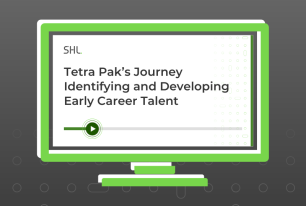Why Candidate Experience Still Remains Elusive for Most Organizations
Learn about the current state of candidate experience and common problems that organizations face in delighting their candidates.
Share
The first real experience that a new employee has of their future employer is as a candidate, and thus this first touchpoint is hugely important. While they may have researched your employer brand and EVP, and checked out online reviews, it is the experience they get from their initial interactions as a candidate that will shape whether they want to join you or not.
Recent research1 conducted amongst 14,000 jobseekers tell us that as many as 87% say that it is the way they are treated during the application and interview stages that will determine whether they join or not.
And, candidates are vocal about their experience too…
Data from Glassdoor indicates that 72% will share the details of a bad candidate experience online, potentially damaging an organization’s brand equity and deterring others from applying.
But, why is it so hard to deliver a great candidate experience?
Many businesses make the mistake of seeing candidate experience as something they create, rather than something that job applicants experience. This often leads to an application and interviewing process that works for the company but not their candidates, who say their biggest frustrations are usually around a lack of feedback and information, and the length of time the process takes.
These problems imply a lack of information and communication to manage expectations—at a time when digital technology allows candidates to be much more in control of their job search. Their experiences as consumers have raised expectations of seamless, intuitive, informed experiences as candidates.
“People want their 9-5 to look like 5-9, and their 5-to-9 lives are full of seamless, effortless experiences, largely enabled by digital technologies”, Brian Kropp, Chief of Research - Gartner.
The Talent Board found that candidates want consistent, concise, and timely communication from start to finish. Expectations also need to be managed, as they want to have some idea of the length and number of steps in the journey. In one of their recent research, almost 60% of respondents said their biggest frustration was a lack of feedback on their application outcome, while around a third said they felt undervalued and that their experience was not fully recognized.
72% of Candidates will share the details of a bad candidate experience online, potentially damaging an organization’s brand equity and deterring others from applying.
The bar continues to rise on what makes a great candidate experience…
For 10 years the Talent Board has overseen the Candidate Experience Awards (the CandE’s), based on surveys from hundreds of thousands of job candidates. Those organizations that win CandE awards in one year do not find it simple to hold on to the award in subsequent years. The bar for a great experience keeps rising each year as consumers’ expectations rise, as does the median candidate experience.
Candidate experience is at the top of the Talent Acquisition agenda—in fact, a poll of 100 TA leaders in March 2021 found candidate experience to be the area they are most looking forward to improving. With many predicting a growing talent and skills shortage over the next few years, Talent Acquisition teams must look to differentiate with a more intuitive, consumer-style approach to their candidate experience.
While most know the benefits of a great experience—from attracting the best talent to building a reputation for being a great place to work, and the potential upside that consumer-facing brands can get from positive candidate advocacy, it is often identifying the starting point for developing a positive experience that companies find most difficult.
The good news is that the technology we need to execute and deliver a great experience is more available than many are led to believe. And many of the problems that we have highlighted—from lack of feedback to the length of the process—can be addressed through the effective use of technology to analyze, personalize and optimize the candidate experience in real-time.
SHL conducted extensive research on candidate experience with us at Two Heads Consulting to identify how we can help organizations delight their candidates. The research identified six shifts that are currently driving great consumer experiences, and which we believe will drive future innovation in candidate experience, to help meet, and exceed, their evolving expectations.
Check out our latest whitepaper to learn about six shifts that can help you build a world-class candidate experience.
Endnotes:
1Two Heads Consulting Proprietary Research, 2018










